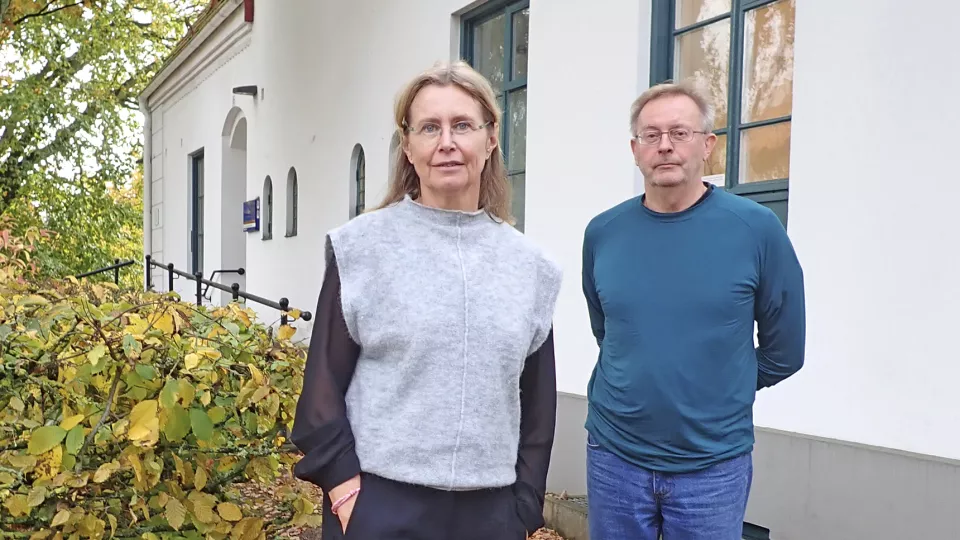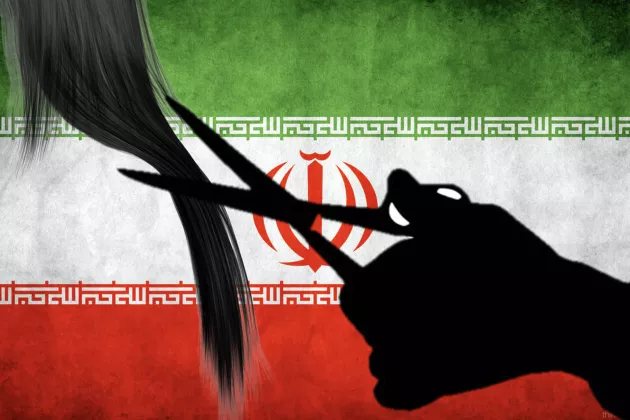Karin Aggestam is Director of CMES and Coordinator of the Strategic Research Area on the Middle East (MECW). On 17 October, CMES organized a public panel debate to shed light on the situation in Iran and draw attention to the protests. The panel debate was preceded by criticism mainly from Iranian diasporas in Sweden who wanted to prevent one of the five panelists from participating. According to them, the panelist is allegedly close to the regime. Others had critical views on the composition of the panel.
– We never considered disinviting a well-established researcher with a strong academic track record in Middle Eastern studies. It is important to stand up for, protect and preserve academic freedom and democratic conversations especially in times of increasing polarization, says Karin Aggestam.
Two Sides of the Same Coin
In Iran, there is no academic freedom in the sense of freely expressing ideas and thinking critically Karin Aggestam and CMES Deputy Director Ronny Berndtsson states. Therefore, it is important to support those who protest but academic collaboration also involve risks. Ronny Berndtsson has experience of this from LTH, where he is a professor at the Division of Water Resources Engineering.
– A few years ago, a former Master's student at LTH was invited as an expert to Iran with the promise of a high position in a government authority to work on environmental and water issues. After some time he was imprisoned because he had criticized the authorities responsible for water and the environment. He ended up fleeing from Iran to the United States. We are still in contact with each other.
After that incident, Ronny Berndtsson, together with another colleague with roots in Iran, visited the country to discuss research collaboration.
– Nothing happened, but my colleague was nervous. You feel that you are being monitored and that the authorities know who you are. So of course there are two sides of the coin when it comes to collaboration.
A New Political Generation
Iran is a theocracy, a state where legislation must stand in harmony with the Sharia and the Islamic state. There is no room for alternative critical opinions, which question the religious order. At the same time, Iran is a country with a high percentage of well-educated people compared to other countries in the Middle East, including a large number of women. Another characteristic of Iran is that around 60 percent of the population is younger than 30 years old.
Karin Aggestam is not surprised that the universities play a central and leading role and that young women stand at the forefront of the protests. What sparked the protests in mid-September was the death of 22-year-old Mahsa Jina Amini. She was arrested by the so-called morality police for not wearing her hijab (headscarf) properly. She was later found dead in custody.
On TV, young women have been seen burning their hijabs and cutting off their hair while chanting "woman-life-freedom". It's about women's rights and to be able to make decisions about their own lives, says Karin Aggestam.
– The protests show that women's rights are human rights. This fight for freedom and democracy also engages many young men who participate in the protests. What is happening in Iran is therefore fostering a new political generation.
Read the original article in Swedish: Forskningssamarbete med Iran långt från självklart
Read more about the public panel on the protests in Iran



